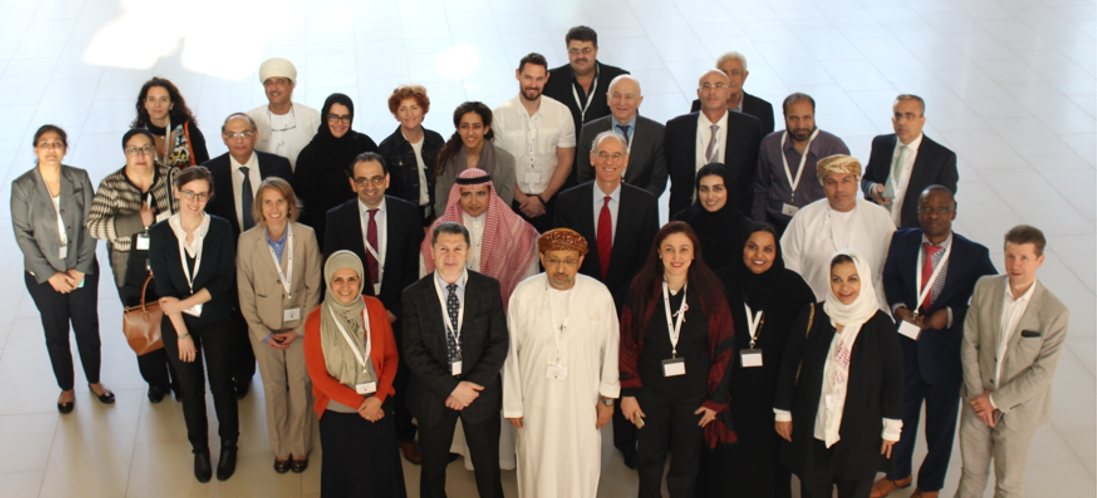Date:
Location:

The Harvard T.H. Chan School of Public Health, with support from and in collaboration with the Harvard Medical School Center for Global Health Delivery–Dubai, convened a regional meeting for the Middle East in Dubai on January 21-23, 2018. The purpose of the meeting was to present country-specific and regional findings from various on-going studies and to hold a multi-stakeholder dialogue to promote knowledge exchange on health systems strategies for improving breast cancer care.
The primary focus of the meeting was a multi-country research study conducted between 2016 and 2017 on the management of breast cancer care across health systems in five countries within the Middle East: Jordan, Kuwait, Oman, Saudi Arabia, and United Arab Emirates. The research study was led by Dr. Rifat Atun, professor of global health systems, Harvard University and director of global health systems cluster, Harvard T.H. Chang School of Public Health and Dr. Diana Bowser, associate professor and director, MS program in global health policy and management at The Heller School for Social Policy and Management, Brandeis University. In addition to analysing the current burden of non-communicable diseases, the study elucidated how health system organization, financing, and resource management in the five study countries are influencing provision of services for breast cancer and outcomes for breast cancer. The study also conducted benchmark analysis on the burden of breast cancer and health system performance across the five countries in comparison to high-income and regional comparator countries. Further, it identified barriers to provision of breast cancer care across each health system function and proposed policy interventions to address them.
Other major studies presented and discussed included the CONCORD Programme, led by Dr. Michel Coleman, professor of epidemiology and vital statistics and Dr. Claudia Allemani, associate professor in cancer epidemiology, research degree coordinator from London School of Hygiene & Tropical Medicine. The Programme is a global surveillance of population-based cancer survival in coordination with cancer registries worldwide, including updated estimates from CONCORD-3, published in The Lancet on January 30, 2018 and is currently available online. Additionally, preliminary findings from a multi-country study led by Dr. Rola Shaheen, chief of radiology at Peterborough Regional Health Centre, Ontario, Canada, on knowledge, attitudes, and perceptions of breast cancer in the Middle East among patients and providers were also shared.
Mentimeter presentation software was used to poll participants throughout the meeting to assess expectations, capture feedback, and promote consensus-building through this interactive and anonymous tool. An initial assessment of the expectations of the conference participants revealed their appreciation of the unique opportunity provided at the Harvard Medical School Center for Global Health Delivery–Dubai to form regional collaborations and to get to know their colleagues. Moreover, about 70% of the participants responding to the Mentimeter questionnaire admitted they were eager to learn about the current state of breast cancer burden and treatment in the region – noting for the most part they had been "flying blind." The workshop participants concluded that there is a need to identify system approaches to address breast cancer care in the Middle East on the entire continuum of care (prevention, screening, diagnosis, treatment, survivorship, and palliation). A recommendation is to foster future collaborations with the Center to develop new knowledge and capacities related to health care delivery in the Middle East. In addition to the study reports—both country specific and regional synthesis—a more comprehensive proceeding from the conference is being generated that would further lay out the thoughts and reports of various working groups.
Number of Participants: 40
Countries Represented: Canada, Egypt, Jordan, Kuwait, Oman, Saudi Arabia, Switzerland, United Arab Emirates, and United States of America
